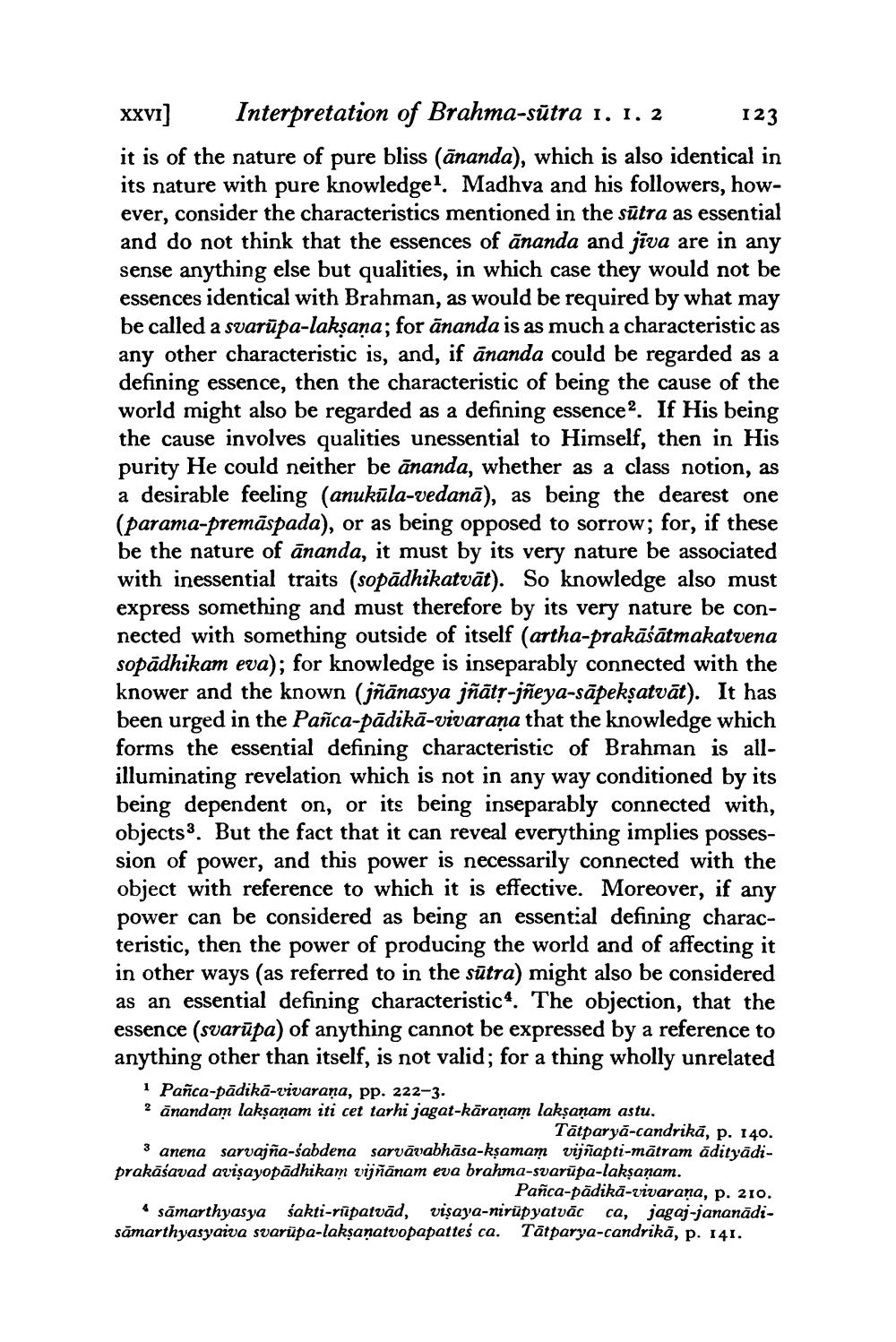________________
XXVI] Interpretation of Brahma-sūtra 1. 1. 2 123 it is of the nature of pure bliss (ānanda), which is also identical in its nature with pure knowledge! Madhva and his followers, however, consider the characteristics mentioned in the sūtra as essential and do not think that the essences of ānanda and jīva are in any sense anything else but qualities, in which case they would not be essences identical with Brahman, as would be required by what may be called a svarüpa-lakṣaṇa; for ānanda is as much a characteristic as any other characteristic is, and, if ananda could be regarded as a defining essence, then the characteristic of being the cause of the world might also be regarded as a defining essence?. If His being the cause involves qualities unessential to Himself, then in His purity He could neither be ānanda, whether as a class notion, as a desirable feeling (anukūla-vedanā), as being the dearest one (parama-premāspada), or as being opposed to sorrow; for, if these be the nature of ānanda, it must by its very nature be associated with inessential traits (sopādhikatvāt). So knowledge also must express something and must therefore by its very nature be connected with something outside of itself (artha-prakāśātmakatvena sopādhikam eva); for knowledge is inseparably connected with the knower and the known (jñānasya jñātr-jñeya-sāpekṣatvāt). It has been urged in the Pañca-pădikā-vivaraņa that the knowledge which forms the essential defining characteristic of Brahman is allilluminating revelation which is not in any way conditioned by its being dependent on, or its being inseparably connected with, objects. But the fact that it can reveal everything implies possession of power, and this power is necessarily connected with the object with reference to which it is effective. Moreover, if any power can be considered as being an essential defining characteristic, then the power of producing the world and of affecting it in other ways (as referred to in the sūtra) might also be considered as an essential defining characteristic4. The objection, that the essence (svarūpa) of anything cannot be expressed by a reference to anything other than itself, is not valid; for a thing wholly unrelated
1 Pañca-pădikā-vivarana, pp. 222-3. ? ānandam laksanam iti cet tarhi jagat-kāraṇam laksanam astu.
Tātparyā-candrikā, p. 140. 3 anena sarvajña-sabdena sarvāvabhāsa-kşamam vijñapti-mātram ādityādiprakāśavad avişayopādhikam vijñānam eva brahma-svarūpa-laksanam.
Pañca-pădikā-vivarana, p. 210. 4 sāmarthyasya sakti-ripatvād, vişaya-nirüpyatvāc ca, jagaj-jananādisamarthyasyaiva svarüpa-laksanatvopapatteś ca. Tātparya-candrikā, p. 141.




